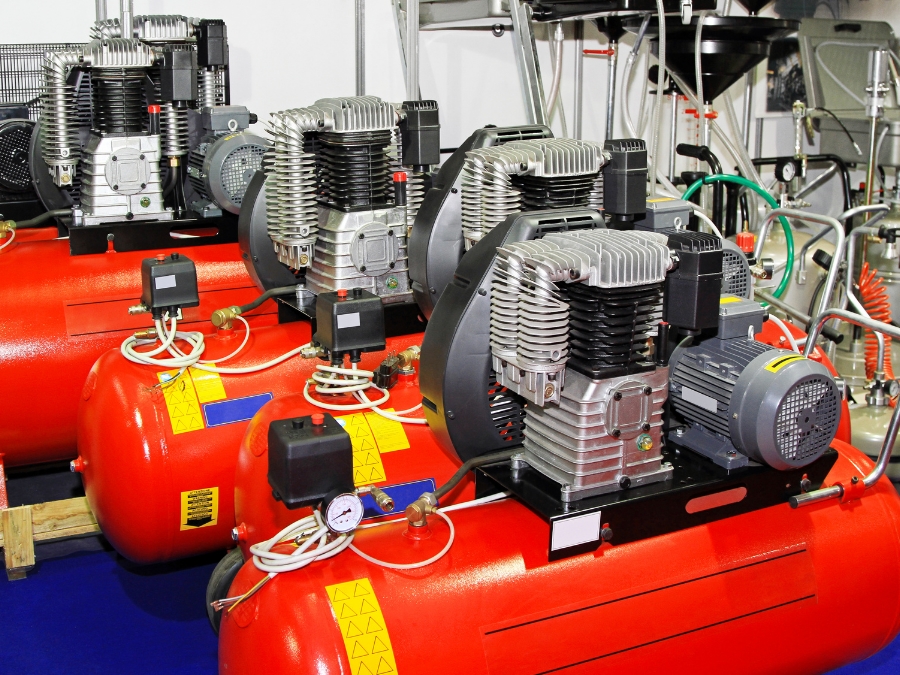Myth: it is safe to clean dirt and debris from a work area using compressed air. Fact: No. This is an unsafe practice. Cleaning a work area using compressed air could result in serious injury as a result of particulate striking or entering the eyes, ears or skin. A safer alternative is to use a vacuum, mop or broom to remove dirt and debris.
Myth: it is safe to clean dirt and debris from a work area using compressed air.
Fact: No. This is an unsafe practice. Cleaning a work area using compressed air could result in serious injury as a result of particulate striking or entering the eyes, ears or skin. A safer alternative is to use a vacuum, mop or broom to remove dirt and debris.
Myth: Variable speed drive is always the best solution for the most efficient part-load performance.
Fact: Not necessarily. Inherent to their design, variable speed drive compressors have an optimum tip speed range where they operate most efficiently. If the compressor load requirements fall outside of this range, other control options may provide the most efficient solution. The compressor provider will need to consider the numerous application requirements in order to recommend the most efficient compressed air solution for the job.
Myth: Variable speed drive increases oil carryover.
Fact: Operating at reduced speeds should have no detrimental impact on oil carryover. The reduced airflow will lower the velocity through the separator media, which will improve its efficiency. There are two primary contributors to an increase in carryover, lower pressure and higher temperature. Neither of these issues is caused by the addition of a VSD.
Myth: using a variable speed drive compressor eliminates the need for a flow controller.
Fact: every application is different, but there are clearly systems that would benefit from the stable, constant pressure that a flow controller can provide in a very dynamic system and the part load efficiency of a VSD compressor. Even with a flow controller and proper storage, an optimized system will fill the storage in the most efficient manner. In many systems, this can include a VSD compressor.
Myth: All “Synthetic” compressor fluids are the same.
Fact: No, they are not the same. When looking at air compressor fluids, the term “Synthetic” is often used to describe the base stock. Since “Synthetic” simply means that the fluid is not a hydrocarbon base stock, it encompasses many different base stocks which offer dramatically different performance. The real question is what is the synthetic base stock, PAG, Diester, PAO? Once you determine the base stock you can evaluate its advantages and disadvantages.
Myth: All Polyglycol(PAG) blended compressor fluids are the same.
Fact: Polyglycol compressor fluids are generally blended with one of two types of ‘Esters,’ “Polyolesters” or “Diesters.” These two differ drastically in their performance in a rotary screw air compressor.
Polyolesters (POE): POE’s handle heat very well and run varnish and sludge free. They are best known as jet engine lubricants. They are expensive and are used in applications where performance is critical, like in a rotary screw air compressor.
Diesters: Diesters are low cost and have the potential to cause sludge. Sludge can become very costly to a company’s bottom line, reducing compressor efficiency and becoming very expensive to remove from a compressor system once it forms. Diesters also cause swelling in gaskets, seals, and hose liners. This results in problems with leaks, swelling of O-rings and deterioration of shaft seals.
BEWARE, many generic Polyglycol/Ester blends turn out to be a Diester base with a minimum amount of Polyglycol. These generic fluids will have all the issues associated with a Diester fluid.
Myth: Generic replacement parts and compressor lubricants are the same as manufacturer proprietary parts and lubricants.
Fact: Maintenance kits and manufacturer proprietary replacement parts and lubricants offer the best overall performance. They are designed to maintain unit efficiency and reliability. Generic parts increase liability, decrease performance, and may void manufacturer warranties.

